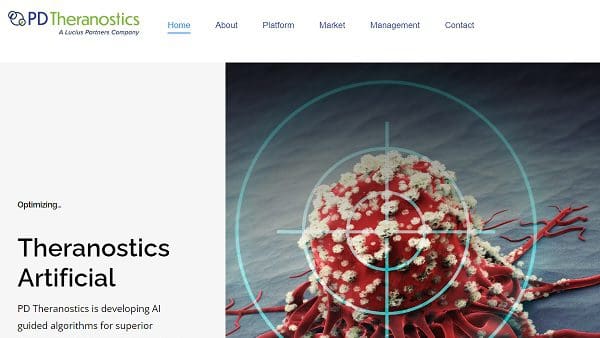
Ovation and PDTx today announced the completion of their merger. The new entity creates an industry-leading multiomics data company managed by a team with deep expertise in genomics data, sequencing, bioinformatics, cell biology and imaging, AI/ML and data commercialization. The Company’s enhanced platform capabilities and data libraries can drive deeper insights into cellular biology and gene expression for research, drug development, and clinical decision making and across a broad range of diseases.
“We believe the two companies are deeply complementary and will provide our customers with best-in-class, diverse multiomics data,” said Curt Medeiros, CEO of Ovation. “These one-of-a-kind data sets will combine Ovation’s DNA and RNA sequencing of patient samples in a given disease state with PDTx’s mapping of cellular footprints, spatial context, immune system functionality and markers, as well as clinical pathology imaging. This will help drive our client’s R&D efforts, from target and biomarker discovery, through optimized clinical trial enrollment.”
Human genomic data has become an increasingly important tool in disease target and biomarker discovery. By analyzing an individual’s genetic makeup, especially in relation to clinical progression and outcomes, researchers are able to better understand the underlying causes of diseases and identify potential therapeutic targets and biomarkers. Ovation is building the world’s broadest commercially available human genomic dataset that brings together whole genome sequences with longitudinal clinical records at the patient level (“clinic-genomics data”) to address the speed and cost at which new research efforts can be powered by human genomics. This clinic-genomics database will enable a depth and breadth of analytics not currently possible due to the scale, continuous flow of new patient samples, and diversity of patients.
“The Ovation and PDTx teams are energized and have been collaborating for the past year to position our first proof-of-concept programs in IBD and prostate cancer for groundbreaking results,” said Patrick Gallagher, CEO of PDTx. “The in-house biobank will allow the team to accelerate data generation and more fully leverage the PDTx platform’s high dimensional multiomic modalities that characterize cellular status. This includes changes in and predictiveness of proteins, glycans, metabolites, and cell-cell spatial relationships that can drive discovery and correlations with pathological features of disease severity, progression and therapeutic response.”
PDTx has developed a disease-agnostic platform to analyze data collected across multiple high-dimensional imaging technologies to discover new drug development targets and identify critical biomarkers of disease progression and therapeutic response. The PDTx platform provides the ability to visualize the presence, concentration, and distribution of molecules and analyze intra- and inter-molecular and phenotypic single-cell relationships and their impact on morphology. Ovation will retain PDTx’s exclusive global license for the platform and its intellectual property from Massachusetts General Hospital (MGH) and the Vaccine and Immunotherapy Center (VIC) at (MGH).
“We are incredibly excited to collaborate with the research team at Ovation,” said Mark Poznansky, M.D., Ph.D, scientific co-founder of PDTx and director of the Vaccine and Immunotherapy Center at Massachusetts General Hospital. “Connecting genetic data with cellular, structural, and chemical details of tissue affected by IBD or prostate cancer can lead to important translational medical progress. For example, our combining a multiomics platform that provides information on both the genetic and protein signature in blood as well the location of specific chemicals and cells within a tissue, can help identify new sets of biomarkers that are potentially impactful diagnostically and prognostically as well as revealing of new disease-related therapeutic targets.”
By combining imaging and sequencing, state-of-the-art multiomics can map the location of specific proteins and chemical products in tissues and identify the location and the presence of these chemical entities. This provides a critical perspective about the cellular microenvironment and inter-cellular interactions in biopsies of diseased tissue.
“This merger leverages a platform with unparalleled scalability to create a leading multiomics company with, ultimately, unparalleled data access and richness,” said James Ahern, Managing Partner of Laidlaw & Company and co-founder of Lucius Partners. “The unique capabilities it creates will speed the development of cost-saving, efficacious, patient-driven solutions for the healthcare industry and continue to enhance shareholder value. We greatly appreciate our shareholder’s support of this important vision.”
About Ovation
Ovation is an omics data company committed to accelerating the development of precision medicine. Ovation provides life sciences R&D teams access to high-quality omics data linked to rich, longitudinal clinical data, across therapeutic areas, at population scale. Ovation’s data increases the probability of success for drug discovery by enabling the identification and validation of biomarkers and therapeutic targets. The company has an extensive biobank of more than 1.6 million geographically diverse, consented biospecimens from over 625,000 unique patients. For more information, visit www.ovation.io or follow the company on LinkedIn.
About PD Theranostics
PDTx is a data-driven healthcare company focused on leveraging proprietary workflows and using multi-parameter imaging-based methodologies to generate robust, one-of-a-kind multi-omic cellular biology-based databases for numerous disease states. Our proprietary imaging processes, (developed by scientific co-founders of PDTx and the Vaccine and Immunotherapy Center, MGH, Drs. Patrick Reeves, Ruxandra Sîrbulescu, and Mark Poznansky), driven by a multi-omics approach, will generate spatial roadmaps of human cancers and other diseases, leading to unparalleled data richness and depth. Through our ability to map tissue structures and immune populations, we believe we could more clearly define disease stage, and likelihood of disease progression, and identify the most efficacious treatment regimens for each patient.




















